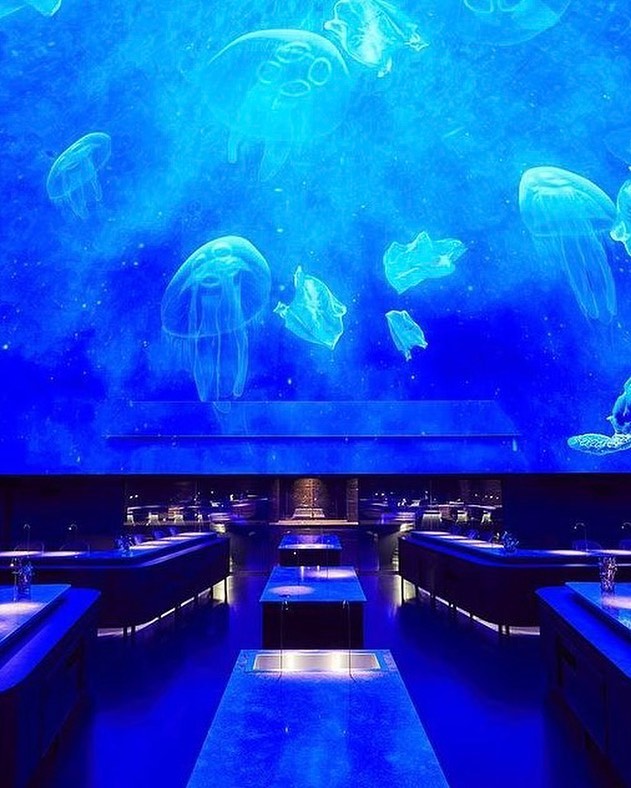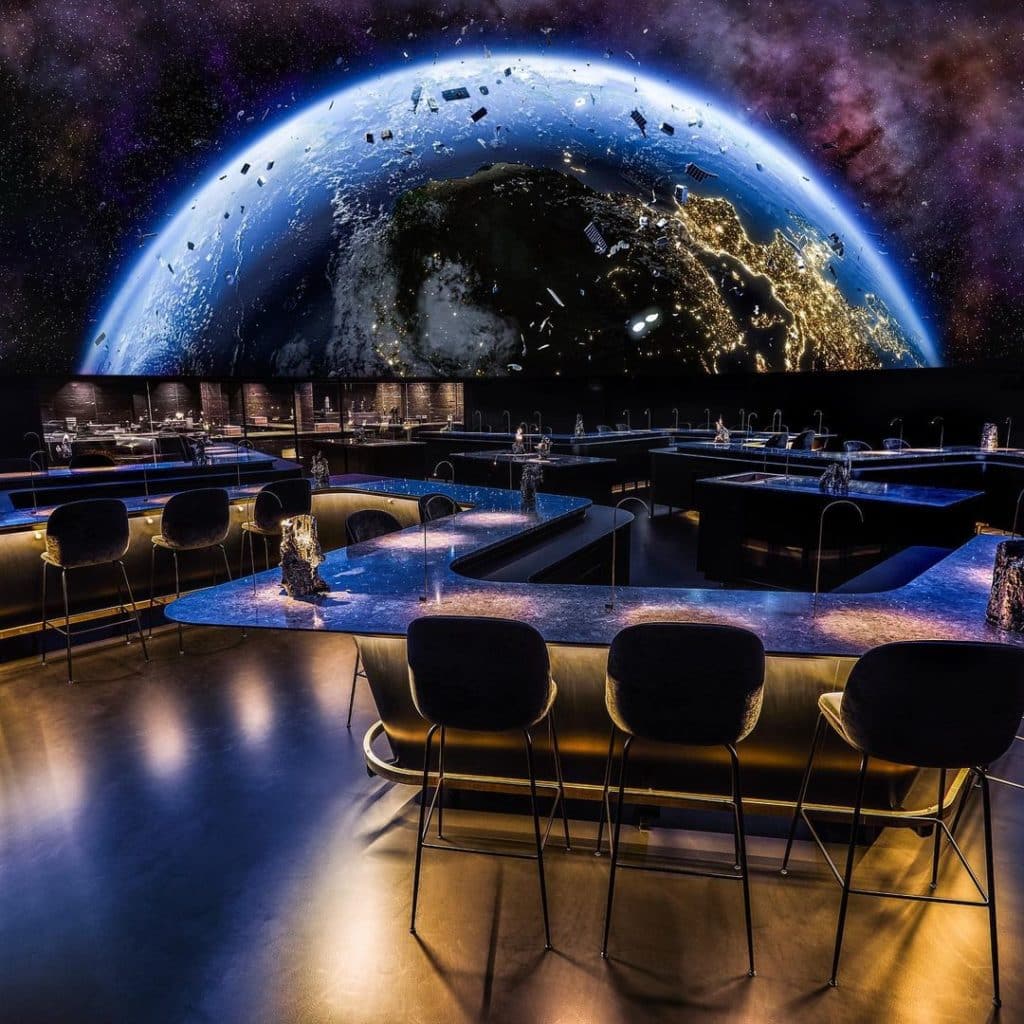Heavy bronze doors by sculptor Maria Rubinke, covered in carvings that depict a fairy tale forest, are the first hints of otherworldliness that define Copenhagen’s Alchemist. Beyond them, guests rove through a sequence of rooms for the next six hours, savoring a daring tasting menu that spans 50 bites while gushing over the glass floor and three-story wine cellar.


Alchemist is located on Refshaleøen, an artificial island imbued with an enticing industrial aura. Once home to the historic B&W shipyard, today it is coveted for its restaurants. Neighboring the mystifying yet transcendent Alchemist, where the fortunate (and equally affluent) have managed to score the more than $500 tickets that sell out minutes upon their release, is Amass. Noma’s new incarnation is close by, too.
The vision of chef Rasmus Munk, Alchemist is a singular fine-dining destination that showcases a dialogue between the culinary, visual, and performing arts. An evolution of Munk’s more intimate first rendition, Alchemist was designed by London’s Studio Duncalf and is housed in a vast building that was fittingly used by the Danish Royal Theatre to build sets.
More a nightly production than mere dinner, the Alchemist experience begins in one of the ever-changing gallery spaces. One time it was swathed in graffiti by street artist Lady Aiko as an ode to New York; more recently it welcomed diners with an emotional violin solo.
Munk’s food is likewise steeped in intrigue, a bright lemon verbena kombucha “daisy” paving the way, say, to a langoustine disguised as chocolate or a playfully shocking silicone cast of a human tongue strewn with botanicals.
Most of this experimental meal unfolds below a planetarium dome projecting dreamy scenes from nature, followed by a finale on the balcony. Coffee sipped amid floating lamps and Fritz Hansen Ro lounge chairs will slowly ease you out of Munk’s elaborate fantasy.


